With the Awami League absent from the political stage following the 5 August 2024 political changeover, the two long-standing allies, Bangladesh Nationalist Party (BNP) and Jamaat-e-Islami (JeI), appear to be drifting apart as they vie for dominance ahead of the upcoming elections.
The BNP has been trying to distance itself from the JeI to gain more support from secular and international communities. This move has led to internal disagreements within the BNP, as some leaders still see value in maintaining ties with the JeI.
Additionally, the JeI has been focusing on its own political agenda, which sometimes conflicts with the BNP’s goals.
Supporters of both parties have been particularly active on social media, exchanging harsh words and fueling the growing hostility between them.
The conflict between the two parties intensified after the mass uprising, primarily surrounding the Islamic bank takeover and the dispute over taking credit for the July-August 2024 uprising.
It is possible that the Jamaat may try to forge an alliance with Islamist parties to emerge as a strong opposition in the 13th parliament if Awami League fails to stage a comeback in politics ahead of the election.
Following this, Jamaat leaders accused the BNP of “grabbing and extortion” across the country.
The BNP initially refrained from commenting, but on 29 December, the Senior Joint Secretary General of the BNP, Ruhul Kabir Rizvi alleged that not only India but also several political parties, including those opposed to the 1971 Liberation War, were trying to exploit the political turmoil for their own gain.
Rizvi has been vocal about his concerns regarding the Jamaat-e-Islami (JeI).
He has accused the JeI of spreading anti-BNP propaganda to divert public attention from its own wrongdoings.
Rizvi’s statements highlight the growing tensions between the two parties, as the BNP tries to distance itself from the JeI to gain broader support.
He also blamed the JeI for indulging in extortion and for wanting to improve relations with India.
In response, the JeI termed the allegations as “baseless and politically motivated”, adding that the party had always stood up against Indian hegemony.
Rizvi also accused Jamaat of being involved in taking over various institutions, including banks, and engaging in tender manipulation. In response, Jamaat issued a statement refuting these allegations.
The discord continued as Jamaat Amir Dr Shafiqur Rahman at an event in Rangpur on 23 December said there are only two tested patriotic forces in the country– ‘one is the army, the other is Jamaat-e-Islami.’
Later, Rizvi termed the Jamaat chief’s comment ridiculous and raised questions about the role of the “Islamist party” in the 1971 Liberation War.
BNP senior leader Maj (Retd) Hafiz Uddin Ahmed even slammed Jamaat for trying to justify its role in 1971 instead of offering an apology.
BNP leaders say that Jamaat Amir first attacked the BNP with his comments shortly after the ouster of Sheikh Hasina, stating that although one oppressor had left, another should not take the nation’s reins.
Meanwhile, the JeI has been focusing on its own political agenda, which sometimes conflicts with the BNP’s goals.
The Jamaat has been actively working to reassert its presence in Bangladesh, particularly in rural areas and among conservative sections of the population.
The party’s political agenda focuses on promoting Islamic values and implementing Sharia law within the political framework of the country.
Crucially, the JeI has been leveraging its student wing, Bangladesh Islami Chhatrashibir, to expand its influence in public universities and rural communities, challenging BNP’s student wing Chhatra Dal.
The party has also been involved in various social and charitable activities, which help to build its support base among the conservative population.
The Jamaat has been vocal about its stance on various national and international issues, such as condemning Israeli actions in Gaza and calling for unity among Muslim nations.
This approach helps the party to connect with conservative and religious voters who share similar views.
The JeI’s efforts to reassert its presence in rural areas and among conservative sections of the population further highlight differences with the BNP which aims to appeal to a wider audience, including secular and international communities, the JeI’s agenda is more focused on religious and conservative values.
In fact political analysts have observed that while BNP and Jamaat have had conflicts in the past, the level of hostility between them this time is unprecedented in recent years as both parties seek to assert their political power.
For the BNP the release of chairperson Khaleda Zia has been a major event, and her presence could help rally the party’s base and strengthen its position in the political landscape.
Besides the JeI, other Islamist parties like Islami Andolan Bangladesh and Bangladesh Khelafat Majlis are gaining ground.
These parties focus on implementing Sharia within the political context and have been expanding their influence.
It is possible that the Jamaat may try to forge an alliance with Islamist parties to emerge as a strong opposition in the 13th parliament if Awami League fails to stage a comeback in politics ahead of the election.
The BNP has been pushing for a new election under the interim government led by Nobel Peace laureate Muhammad Yunus.
The party has been organizing rallies and demanding that the interim government hold the next national election soon.
Dr. Shafiqur Rahman, the Ameer of JeI, has been vocal about the need for urgent reforms before elections in Bangladesh.
The JeI’s stance on elections reflects its broader political agenda of promoting Islamic values and implementing Sharia law within the political framework of Bangladesh.
The party aims to gain influence by appealing to conservative and religious voters, particularly in rural areas.
Jamaat chief criticised the BNP in September when the party demanded an early election, prompting BNP Secretary General Mirza Fakhrul Islam Alamgir to respond, saying that those with no public support do not want the election.
BNP leaders, including Amir Khasru Mahmud Chowdhury, criticised Yunus’s statement for lacking a structured plan, describing his remarks as merely an idea rather than a clear roadmap for credible elections.
BNP leaders said though they are actively vocal about the election roadmap and early election, Jamaat wants the election to be delayed with their evil intention.
Jamaat is seeking local body elections before the national election, which goes against the stance of the BNP.
For the BNP the release of chairperson Khaleda Zia has been a major event, and her presence could help rally the party’s base and strengthen its position in the political landscape.
Tarique Rahman, Khaleda Zia’s son and the acting chairman of the BNP, has been living in exile in London since 2008 due to various legal issues.
There has been speculation about his return to Bangladesh, especially after the recent political changes.
His return could invigorate the party, as he is seen as a key leader who can mobilize support and lead the BNP in future elections.
However, his return is contingent on resolving ongoing legal proceedings against him. Together, these developments could provide the BNP with the momentum it needs to reassert itself in Bangladesh’s political arena.
Amidst simmering tensions surrounding the nation’s polity elections
In his national address, on December 16, 2024 Muhammad Yunus, laid out a tentative timeline for the country’s democratic future stating that general elections could occur by late 2025 or early 2026.
BNP leaders, including Amir Khasru Mahmud Chowdhury, criticised Yunus’s statement for lacking a structured plan, describing his remarks as merely an idea rather than a clear roadmap for credible elections.
Meanwhile Jamaat is trying to stimulate its grassroots and expand its organisation by making negative comments against the BNP in the absence of the Awami League.


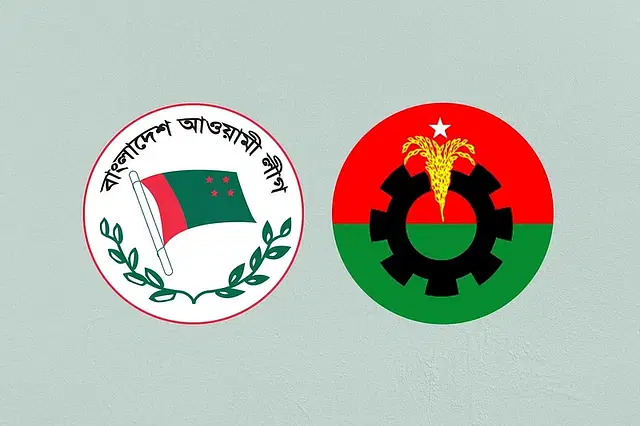
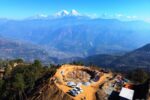
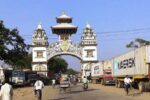
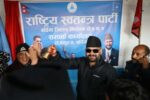
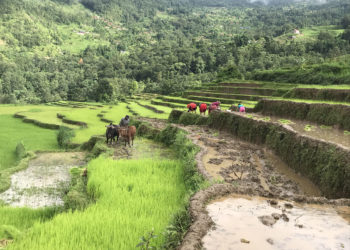


Comment